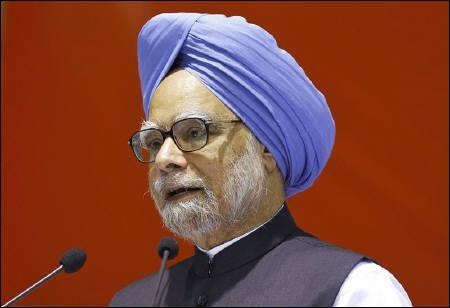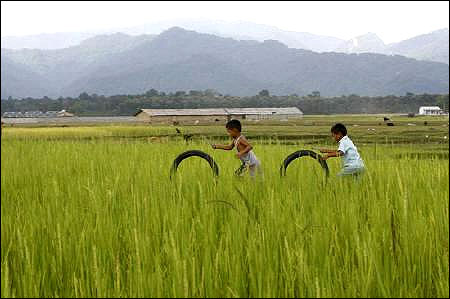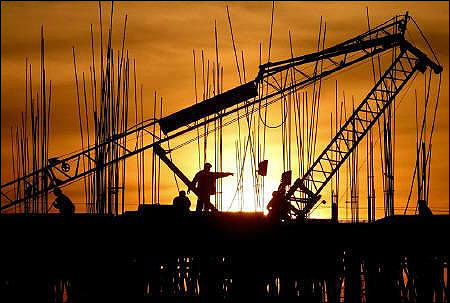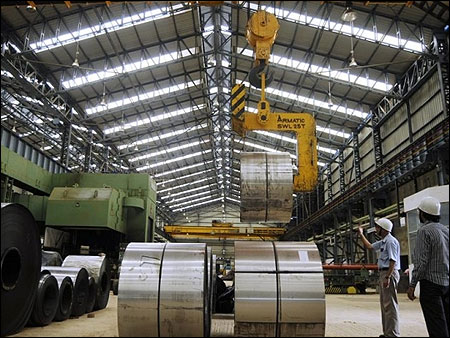 | « Back to article | Print this article |
PM paints a sad picture of India's economy
Amid grim global situation and high domestic interest rates, Prime Minister Manmohan Singh on Friday said country's economic growth is likely to slow down to 7-7.5 per cent this fiscal from 8.4 per cent last year.
"...growth in the current fiscal year is likely to be lower, between 7 and 7.5 per cent, in a large measure due to the continuing uncertainty in the global economic environment," he said at the Chief Secretaries conference in New Delhi.
India's economy had expanded by 8.4 per cent in 2010-11 financial year.
"This (8.4 per cent growth) was a creditable performance when seen in the background of a crisis-ridden world economy.
"But, monetary tightening together with a difficult global economic environment, particularly the lingering Euro Zone crisis, has impacted the rate of growth adversely," Singh added.
Click on NEXT for more...
Click here for Rediff Realtime News!
PM paints a sad picture of India's economy
While price situation is showing signs of moderation, the prime minister said the key to controlling inflation in food articles on a sustainable basis is by increasing agricultural production and productivity.
"And it is here that the state governments have a crucial role to play," he said.
He asked states to give more attention to modern technology in agricultural research besides public investment in the sector and reforms in the farm marketing system and practices.
"There is a need to review and amend the Agriculture Produce Marketing Act to enable farmers to bring their products to retail outlets and also allow retailers to directly purchase from the farmers. This would bring better remuneration to farmers, check wastage and allow competitive prices to prevail in retail markets," Singh added.
Click on NEXT for more...
PM paints a sad picture of India's economy
Hailing as "creditable" the growth rate of the country's economy at the rate of 8.4 per cent in the backdrop of a crisis-ridden world economy, Singh said that the growth in the current financial year is, however, likely to be lower between 7 to 7.5 per cent in a large measure due to the continuing uncertainty in the global economic environment.
While noting that inflation was a persistent problem during the course of last year, particularly with regard to food items, the prime minister said the government took several measures to ease supply constraints that were a cause for rising prices.
"This coupled with the policy of monetary tightening that the Reserve Bank adopted has led to a continuous decrease in
inflationary pressure in primary food articles in recent weeks.
"The overall inflation has also eased. But, monetary tightening together with a difficult global economic environment, particularly the lingering Euro Zone crisis, has impacted the rate of growth adversely", he said.
Click on NEXT for more...
PM paints a sad picture of India's economy
Singh said that the key to controlling inflation in food articles on a sustainable basis lay in increasing agricultural
production and productivity in which the "state governments have a crucial role to play".
He also urged states to give more attention to areas such as modernisation of agricultural research and agricultural
extension system, public investment in agriculture, and reform of the agricultural marketing system and practices.
The prime minister felt there was a need to review and amend the Agriculture Produce Marketing Act to enable farmers
to bring their products to retail outlets and also allow retailers to directly purchase from the farmers.
He said this would bring better remuneration to farmers, check wastage and allow competitive prices to prevail in
retail markets.



